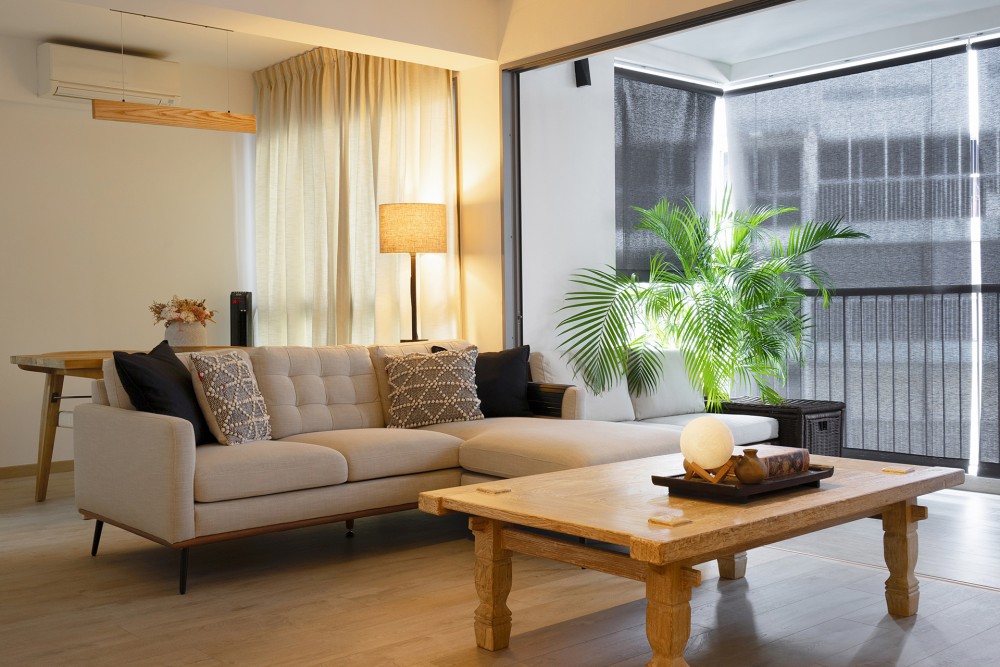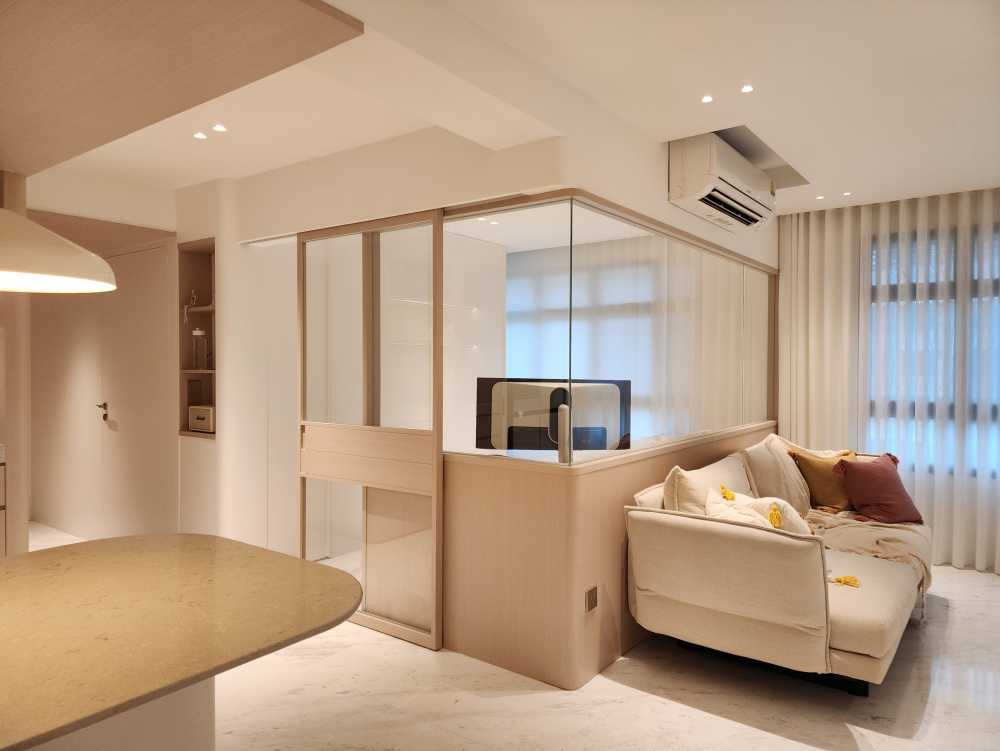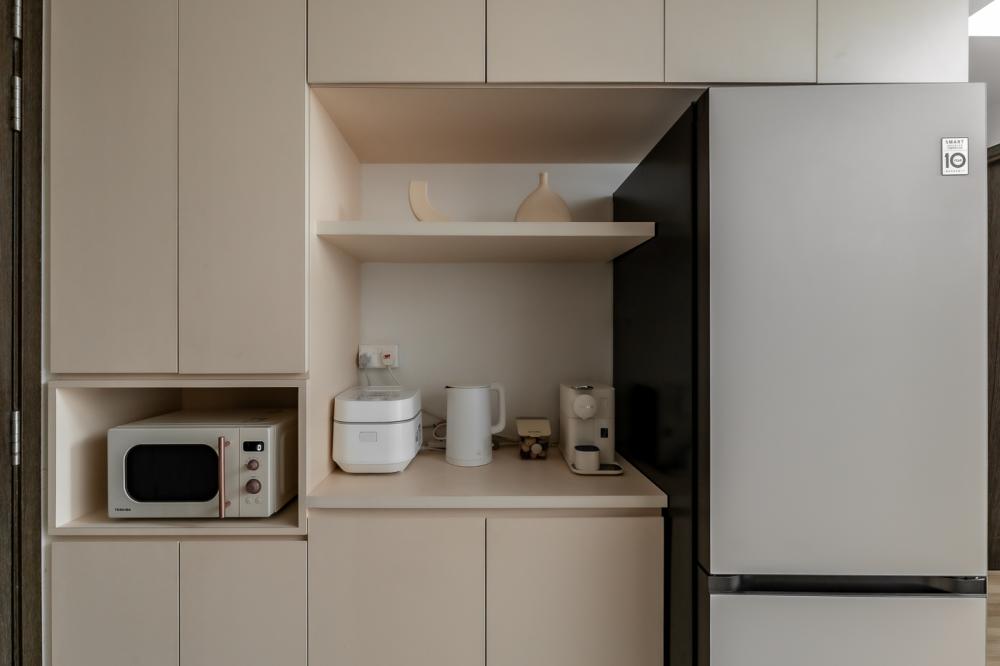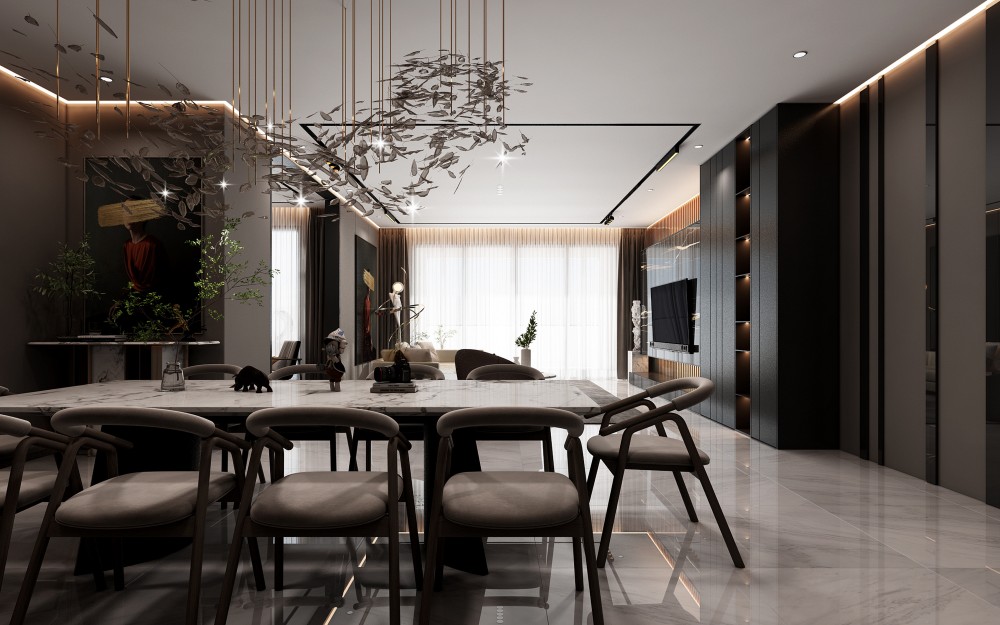Should You Get A Home Security System?
Singapore is known for its low crime rates, and the fact that it’s one of the safest countries in the world.
That being said, is it necessary for homeowners to purchase a home security system?
In this article, we delve into this question.
We’ll discuss the pros and cons of home security systems, and also introduce you to the different types of home security systems you may wish to consider.
Do You Need A Home Security System?
Here’s the million-dollar question: do you need a home security system?
Let’s look at the numbers.
In 2021, there were only three cases of housebreaking and related crimes for every 100,000 people in Singapore.
To put it simply, that’s a chance of just 0.003% that your home might be targeted.
To be honest, that’s an extremely low number – it’s almost negligible.
But don’t forget that home security systems don’t just protect you against burglary.
They also come in handy for safeguarding your home against suspicious individuals hanging around or unexpected situations that might catch you off guard.
Whether you need a home security system also depends on your family unit and your lifestyle.
For example, if you travel often, you may like the peace of mind that a home security system can provide you with.
Families with young children can also use security cameras and sensors to keep an eye on their kids and ensure their safety.
Finally, seniors who live alone or spend a lot of time at home can feel more secure with a home security system. These systems can provide quick access to help in case of emergencies.
Now, you might be wondering: does the type of property you live in affect your need for a home security system?
For example, if you stay in a gated community such as a condo, your home should theoretically be more secure.
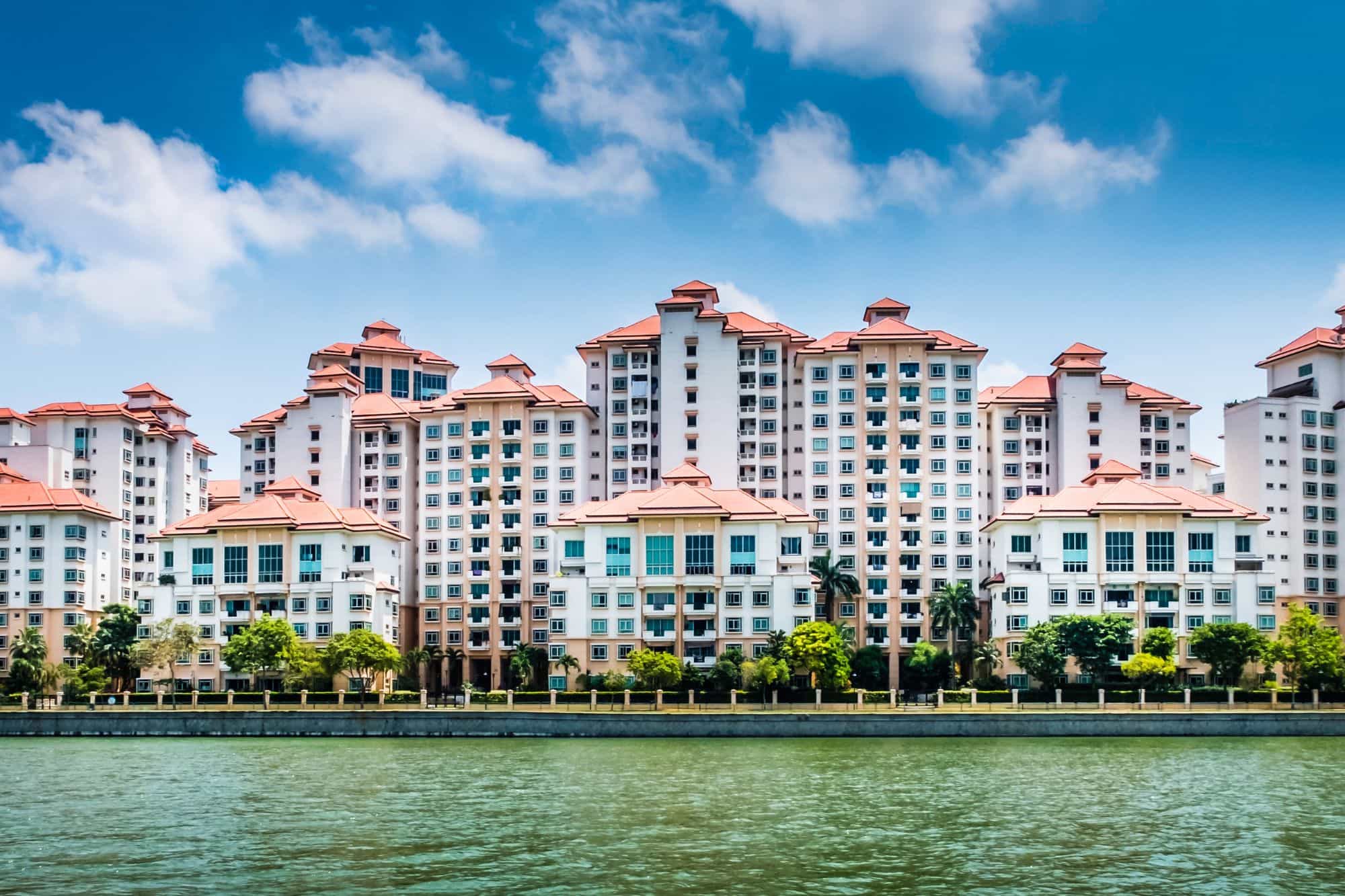

After all, you need an access pass to get into a condo unit, and there are security guards on standby.
However, in practice, the situation isn’t as straightforward as it might seem.
Consider this: security guards and condo management frequently grant access to delivery riders without verification.
If the intended recipient of a package isn’t home, the condo management will typically buzz in the delivery person without scrutiny.
The constant flow of GrabFood and delivery drivers in and out of condos can unintentionally create vulnerabilities.
It’s not difficult to imagine how someone with ill intentions could exploit this trust-based entry system by posing as a delivery rider.
Of course, this isn’t to undermine the efforts of security personnel or the management units.
Instead, it underscores the reality that security requires a multi-layered approach.
Ultimately, a home security system offers an additional layer of protection that can complement existing security measures.
Think of it as helping to bridge the gap between perceived security and the potential vulnerabilities that might exist.
Benefits Of Home Security Systems
There are several benefits that home security systems offer.
Firstly, they give you peace of mind.
Despite the rarity of criminal activities, a home security system can provide an added sense of security.
The knowledge that your home is being monitored offers reassurance and tranquility, and if you choose to install a smart home security system, you may even be able to monitor your property yourself, via an online app.
This lets you check in on your home easily – whether you’re catching up with a friend at a café nearby or you’re overseas exploring another city, your home’s status remains just a tap away.
On top of that, there’s the element of deterrence as well.
Visible security measures, such as surveillance cameras and alarm systems, can serve as a strong deterrent to potential intruders.
Even in a safe environment like Singapore, the mere presence of security systems can make criminals think twice before attempting any unlawful activities.
Considerations Before Investing In A Home Security System
On the flip side, there are some considerations to keep in mind before investing in a home security system.
These include:
- Cost
- False alarms
- Privacy
- Maintenance
Firstly, there’s the cost.
When considering a home security system in Singapore, it’s essential to weigh the financial aspects of both initial setup and ongoing maintenance.
The cost includes not only the purchase of the security system components such as cameras, sensors, and alarms, but also installation fees if you opt for professional installation.
The amount you’ll spend on a home security system depends on how complex you want the system to be.
If you’re simply getting a smart security camera so you can monitor the comings and goings at your home, this will perhaps set you back by $200-$400.
However, if you want to install a CCTV, this will cost you at least $500+ per CCTV.
And if you want to install something more comprehensive, like a full-fledged smart home security system that covers all aspects of your home’s safety, including intrusion detection, environmental monitoring, and remote access control, the cost will naturally be higher.
With such a system, there are many factors influencing the cost, such as the number of devices (sensors, cameras, motion detectors, alarms, etc), the features and technology, and more.
Generally speaking, you can expect to spend at least $1,000 on these systems.
Now, while the upfront costs of getting a home security system might seem significant, most homeowners choose to view them as an investment in the safety and peace of mind for their family and belongings.
It also makes sense to weigh the costs against the potential benefits that the home security system can provide.
Assuming that you keep valuable items at home, the expense of a security system may be relatively small compared to the potential losses that could result from a burglary or intrusion.
On the other hand, if all your valuable belongings are locked up in a safe deposit box at another location, and you don’t have valuable items lying around at home, you may feel like it’s less necessary to install a home security system.
Costs aside, another key consideration is false alarms.
With a home security system installed, there’s always the possibility of triggering a false alarm.
You’ll want to minimise these, as frequent false alarms can strain emergency services and create annoyance among neighbors.
To minimise false alarms, proper installation is crucial. Ensuring that sensors are placed correctly and calibrated appropriately reduces the chances of accidental triggers.
Regular maintenance and system updates are equally vital in preventing false alarms.
Checking the system’s components, such as batteries and sensors, and keeping them in good working condition can significantly reduce the occurrence of false alarms.
Additionally, educating household members about proper system usage, such as arming and disarming the system correctly, can further mitigate unnecessary alarms.
Next, let’s talk about privacy.
Privacy concerns are valid when it comes to security systems, especially with the use of surveillance cameras.
While the benefits of monitoring your property are clear, it’s important to respect the privacy of your family members and neighbors.
Keep in mind that Singapore has comprehensive data protection regulations in place to safeguard individuals’ privacy rights.
When installing surveillance cameras, consider their placement to avoid capturing private spaces or neighboring properties.
Informing your neighbors about the presence of cameras can help maintain a harmonious relationship within the community.
Opting for security systems with features like customisable privacy zones can further enhance your control over what the cameras capture.
How do these work? Privacy zones are areas within the camera’s field of view that you can designate as off-limits for recording or monitoring.
These zones are specifically designed to protect sensitive areas from being captured by surveillance cameras.
By setting up privacy zones, you can prevent the unintentional recording of spaces that should remain private, such as neighboring properties, windows of neighboring homes, or areas within your property where activities occur that you don’t wish to be captured on camera.
Privacy aside, maintenance is also a key concern for homeowners with home security systems.
To ensure the continued effectiveness of your home security system, regular maintenance is crucial.
Over time, components can degrade, batteries can weaken, and software might need updating.
Reputable security system providers often offer maintenance packages that include routine check-ups, system upgrades, and technical support.
By neglecting maintenance, you risk the system’s reliability, potentially leading to false alarms or missed alerts.
Staying proactive with maintenance not only ensures that your system operates optimally but also extends its lifespan, providing lasting value for your investment.
Different Types Of Home Security Systems
When it comes to home security systems, homeowners have a variety of options to choose from.
Burglar alarm systems
These systems rely on sensors placed on doors and windows to trigger alarms in case of unauthorized entry.
How it works: Burglar alarm systems operate based on sensors placed on doors and windows. When armed, these sensors create a circuit. If someone tries to open a door or window while the system is armed, the circuit is broken, triggering an alarm. These systems can be wired or wireless, with wireless setups being easier to install.
Maintenance needed: Maintenance for burglar alarm systems usually involves periodic checks to ensure the sensors are functioning correctly. You should test the system regularly to make sure all components are operational. Additionally, keep the sensors and control panel clean and free from dust or debris that could interfere with their functionality.
Surveillance camera systems (CCTVs)
Surveillance cameras provide real-time video footage and can deter potential intruders.
How it works: Surveillance camera systems use cameras strategically placed around your property to capture real-time video footage. This footage can be viewed in real-time through a monitor or accessed remotely through an app on your smartphone or computer. Cameras can be both indoor and outdoor and may have features like motion detection and night vision.
Maintenance needed: Regular maintenance includes cleaning camera lenses to ensure clear footage, checking cables and connections for any damage, and ensuring that the camera angles are still optimal for capturing the desired areas. Software updates should also be performed to keep cameras running smoothly and securely.
Smart home security systems
These systems integrate devices like cameras, motion sensors, and smart locks into a central hub, offering remote control and monitoring.
How it works: Smart home security systems integrate various devices like cameras, motion sensors, and smart locks into a central hub. This hub is connected to your home network and can be controlled and monitored remotely through a mobile app. You can receive real-time alerts, arm or disarm the system, and view live or recorded footage.
Maintenance needed: Maintenance includes keeping the central hub updated with the latest firmware, ensuring that all devices are connected and functioning properly, and periodically testing the system to verify its responsiveness. Regularly updating passwords and ensuring strong network security is also crucial.
Motion sensor systems
Motion sensors detect movement and can trigger alarms, lights, or notifications.
How it works: Motion sensor systems use sensors that detect movement within a specified area. When motion is detected, the sensor triggers an action, such as turning on lights, sounding an alarm, or sending a notification to your smartphone. These systems are often used to secure specific rooms or entry points, such as your front door or your backyard or patio.
Maintenance needed: Regular maintenance involves checking the sensor’s batteries and replacing them when needed. Additionally, make sure the sensors are positioned correctly to avoid false alarms caused by pets or moving objects. Periodic testing of the system’s responsiveness is also recommended.
Professional home monitoring system
Some systems offer professional monitoring services to verify emergencies and dispatch assistance.
How it works: With professional monitoring, your security system is connected to a monitoring center operated by a security company. When an alarm is triggered, the monitoring center receives an alert. They verify the emergency and, if necessary, dispatch the appropriate assistance, such as the police or fire department.
Maintenance needed: Maintenance primarily involves keeping your contact information up to date with the monitoring company. Regularly testing the system’s communication with the monitoring center is also essential to ensure quick and effective responses in case of an emergency.
What Are Your Alternative Options?
For individuals who might not want a home security system, there are alternative security measures to consider.
Reinforcing doors and windows with better locks and materials can be a cost-effective way to enhance physical security.
Motion-activated outdoor lighting, thorny plants around windows, and property signage can also act as deterrents.
While these measures might not provide the same level of technological sophistication as a security system, they can serve as effective deterrents and contribute to overall home security.
A Final Word On Home Security Systems
In a nation where safety is (sometimes) taken for granted, it may be tricky to decide if a home security system is necessary.
Yes, Singapore’s low crime rates definitely provide a sense of security for homeowners.
That said, it ultimately boils down to you and your family’s lifestyle.
Think about whether you travel frequently, whether you store valuable items at home, and whether you have old or young individuals at home who may benefit from the presence of a home security system.
At the same time, keep in mind the considerations we raised as well.
Purchasing a home security system isn’t just as simple as setting it up and forgetting about it – you’ll need to take care of ongoing maintenance to make sure the system is functioning well, and not raising false alarms.
Want to check out home renovation projects for more inspiration? Browse interior design ideas on Hometrust, or click the button below to get connected with expert designers!
Renovating soon? Let Hometrust recommend the best interior designers.
If you are reading this, you are probably wondering how you can create your dream home.
Here’s the thing, everyone’s needs and requirements for their home renovation is different. A designer that may work for someone else, may not quite work for you.
At Hometrust, we’re here to help match top rated designers, recommended by past homeowners to you through our data-driven and matching algorithm.
Whether you are looking for partial renovation or a full fledge overhaul, we’ll be able to recommend you top designers to match your renovation requirements and lifestyle.
Recommendations and free and you can simply start by helping us understand your needs below!
Get RecommendationsRenovate safe!
The Hometrust Team

